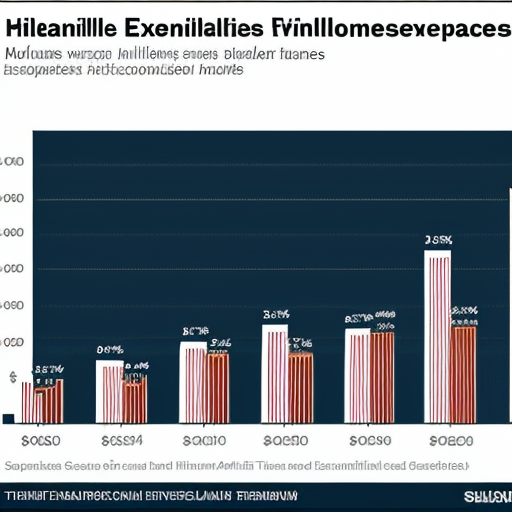In an alarming revelation, the Internal Revenue Service (IRS) chief has reported that tax evasion by millionaires and billionaires has soared to a staggering $150 billion annually. This startling figure highlights the extent of wealth inequality in our society and raises questions about how these individuals manage to avoid paying their fair share of taxes.
The IRS chief’s statement comes as no surprise to those who have been following the issue closely. For years, there have been allegations that wealthy individuals and corporations exploit loopholes in the tax system to reduce their tax liabilities. This practice not only leads to a loss of revenue for the government but also contributes to the growing wealth disparity between the rich and poor.
The $150 billion figure is equivalent to the annual budgets of many states, which could have been used for essential services such as education, healthcare, and infrastructure development. This lost revenue could have a significant impact on the economy, particularly during these challenging times when governments are struggling to address the economic fallout from the pandemic.
The IRS has been underfunded and understaffed for years, making it difficult for the agency to effectively enforce tax laws and investigate potential instances of tax evasion. As a result, wealthy individuals and corporations have been able to exploit the system with relative ease, further exacerbating the problem. The IRS chief’s statement highlights the urgent need for increased funding and resources for the agency to better tackle this issue.
One possible solution to address tax evasion by millionaires and billionaires is to close the loopholes that allow them to avoid paying their fair share of taxes. This could involve rewriting tax laws, increasing transparency, and implementing stricter penalties for those who engage in tax evasion. However, any changes to the tax system would require bipartisan support in Congress, which may prove challenging given the current political climate.
Another approach to combating tax evasion is through international cooperation. Many wealthy individuals and corporations operate across borders, making it difficult for individual countries to tackle tax evasion effectively. By working together with other nations, governments can share information, coordinate enforcement efforts, and hold tax cheats accountable regardless of where they attempt to hide their wealth.
Ultimately, the issue of millionaires and billionaires evading taxes is a complex one that requires a multi-faceted approach. Increased funding for the IRS, closing loopholes in the tax system, and fostering international cooperation are all essential steps towards ensuring that everyone pays their fair share of taxes and reducing wealth inequality in our society.





Leave a Reply